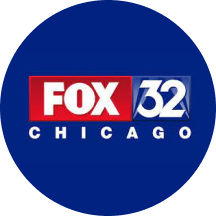WASHINGTON – Protests against the National Guard roiled DC on Sept. 6 as Chicagoans waited to see where President Donald Trump, who rattled his saber on social media, would send troops next aiming to fight crime.
But it’s not clear where troops might head next, after Trump suggested he could also send them to New Orleans. Governors traditionally decided when to deploy troops short of an insurrection, and Illinois Gov. JB Pritzker has opposed the move in Chicago while Louisiana Gov. Jeff Landry welcomed the possibility.
Trump told reporters Sept. 5 he has decided where to send troops next but he didn’t reveal the location. Here’s what to know about what’s happening with the National Guard:
Trump cites war film for immigration enforcement in Chicago
Trump's comments on deploying the National Guard to Chicago have been mixed. He said Sept. 2 he would send troops to the Illinois city, after a violent Labor Day weekend, before cautioning that he only wanted deployments where governors welcomed them.
But Trump paraphrased a line on social media Sept. 6 from the movie “Apocalypse Now” to threaten continued deportations of undocumented immigrants in Chicago. Trump also signed an executive order Sept. 5 changing the name of the Defense Department to the War Department, the name it had from the founding of the country through World War II.
“I love the smell of deportations in the morning,” Trump said, converting a line about napalm in the Vietnam War to refer to deportations. “Chicago about to find out why it’s called the Department of WAR.”
Pritzker replied on social media that referring to war against an American city “is not normal.”
“The President of the United States is threatening to go to war with an American city. This is not a joke,” Pritzker said. “Illinois won’t be intimidated by a wannabe dictator.”
DC protests – and National Guard deployments – continue
Several thousand protesters marched in Washington to demand an end to the guard deployment, which features 2,000 troops from six Republican-led states.
The protests came two days after DC Attorney General Brian Schwalb sued the Trump administration to remove the troops.
But the commander of the DC National Guard extended the move Sept. 6 to Nov. 30.
The president contends the deployment is helping make DC, which he called a “filthy and crimeridden embarrassment," more safe. The White House has promoted a reduction in crime since the Aug. 11 deployment.
Protesters, who demonstrated over issues ranging from immigration to Palestinian statehood, chanted slogans and carried signs that said “Trump must go now” and “Resist Tyranny.”
An organizer, Joseph Geevarghese, executive director of the nonprofit Our Revolution, said protesters refused to “live under occupation.”
“Trump’s merger of authoritarian power and oligarch wealth is the gravest threat to our democracy – and today we are proving that democracy lives in the people,” he said. “This is people power against tyranny, and we will not be silenced.”
California officials continue to fight Guard deployment in court
Trump had sent troops to Los Angeles in June to protect immigration enforcement officials and federal buildings against major protests, and 300 troops remain despite opposition from Gov. Gavin Newsom and Mayor Karen Bass.
Newsom continues to battle that deployment in court. A federal judge ruled Sept. 2 that Trump’s deployment was unlawful because the troops were carrying out law enforcement functions contrary to the 1878 Posse Comitatus Act against such use of the military.
“Trump's mass raids and stripping people of legal status risk tearing it apart – gutting our workforce and raising costs for everyone while separating American families,” Newsom said on social media Sept. 6. “End these senseless policies now, @realDonaldTrump.”
Louisiana reaction to possible Guard deployment mixed
The reaction to a potential troop deployment in Louisiana has been mixed.
The governor, Landry, welcomed troops “from New Orleans to Shreveport” after Trump said Sept. 3 that he could straighten out the Big Easy in two weeks.
But Shreveport Police Chief Wayne Smith said he wasn’t sure what the National Guard could do to help fight crime in a city shaken with 26 homicides this year. Smith said his department is short 150 officers but that many of the current officers also belong to the National Guard, so a deployment would thin his ranks.
"I am not sure what the National Guard can do to assist us, because we have an awesome working relationship with our local sheriff, the marshal, our Louisiana state police, the FBI,” Smith said. “We have an awesome working relationship with all the federal agencies."
Contributing: Reuters
This article originally appeared on USA TODAY: Trump threatens 'WAR' in Chicago; Pritzker hits back at potential National Guard deployment
Reporting by Bart Jansen, USA TODAY / USA TODAY
USA TODAY Network via Reuters Connect

 USA TODAY National
USA TODAY National
 America News
America News Associated Press Elections
Associated Press Elections Raw Story
Raw Story Chicago Sun-Times Politics
Chicago Sun-Times Politics The Daily Beast
The Daily Beast FOX 32 Chicago Politics
FOX 32 Chicago Politics